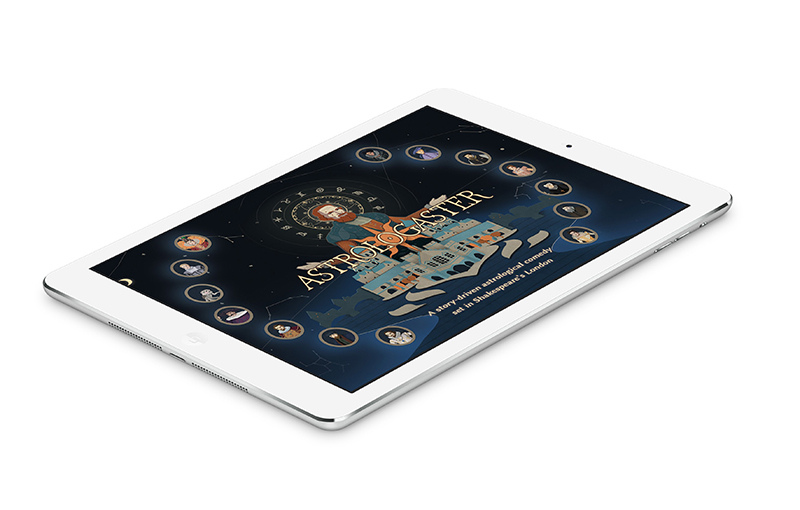Case study: Astrologaster
How can a historian use the preoccupations of ordinary 21st-century people to understand the lives of ordinary 16th-century Londoners?
It’s a question that Professor Lauren Kassell of the Department of History and Philosophy of Science took to a Wellcome Trust-organised workshop about five years ago. There Kassell was introduced to Jennifer Schneidereit, a programmer and founder of Nyamyam, an independent game developer.
Kassell described to Schneidereit a remarkable trove of manuscripts at the Bodleian Library, University of Oxford. Written by the medical astrologers Simon Forman and Richard Napier in the decades around 1600, the papers constitute one of the world’s largest surviving sets of private medical records. Kassell leads a team of scholars transforming the papers into an accessible digital archive, dubbed the Casebooks Project. Intrigued, Schneidereit visited the Casebooks Project and discussed Forman, his patients and the history of medicine and astrology with Kassell.
In 2015, Nyamyam decided to create a video game in which players would assume the role of Forman. When they asked Kassell to serve as a consultant on the project, she turned to the Consultancy Services team for advice. “It was a new world for me,” says Kassell. “Cambridge Enterprise explained why I needed a contract to work with Nyamyam and put everything in place without any hassle.”
Kassell and the Casebooks team read drafts of the character summaries, storylines and scripts, checking for historical accuracy. They focused closely on the social dynamics of early modern medical practice, the politics of the early modern medical marketplace and how patients and practitioners understood health and disease. Kassell and the Casebooks team also endorsed the use of humour and deliberate anachronism, and discouraged the use of nostalgia, to push players to think about meanings of health and illness in the past and in the present.
Astrologaster, the game born from this unusual collaboration is, by all accounts, a hit. In December Paste magazine included it in its ’30 Best Video games of 2019′:
The University’s involvement may have had a wider impact as well. An article in the magazine Prospect noted Kassell’s role not merely in this game, but in laying out a new, more sophisticated genre for computer games in general, noting “video games grew up—and became an art form to rival Hollywood”.
Image: Astrologaster video game Credit: Astrologaster




